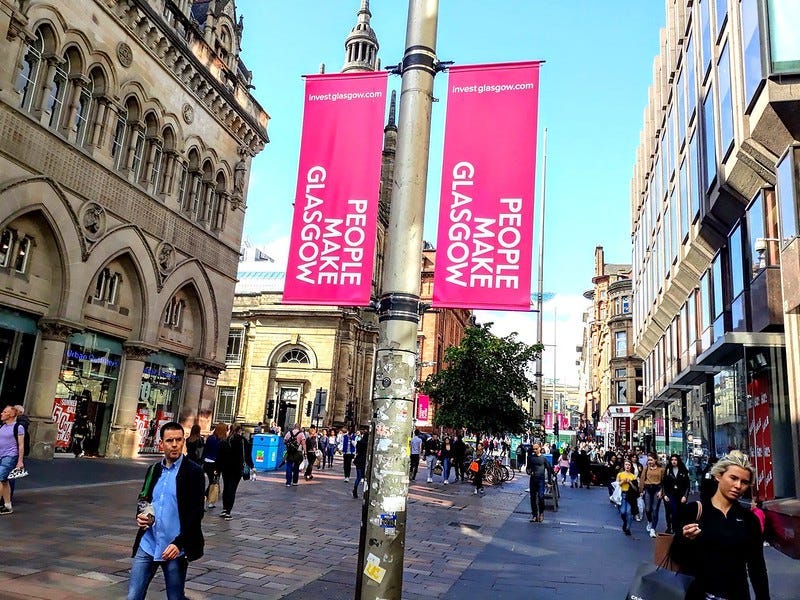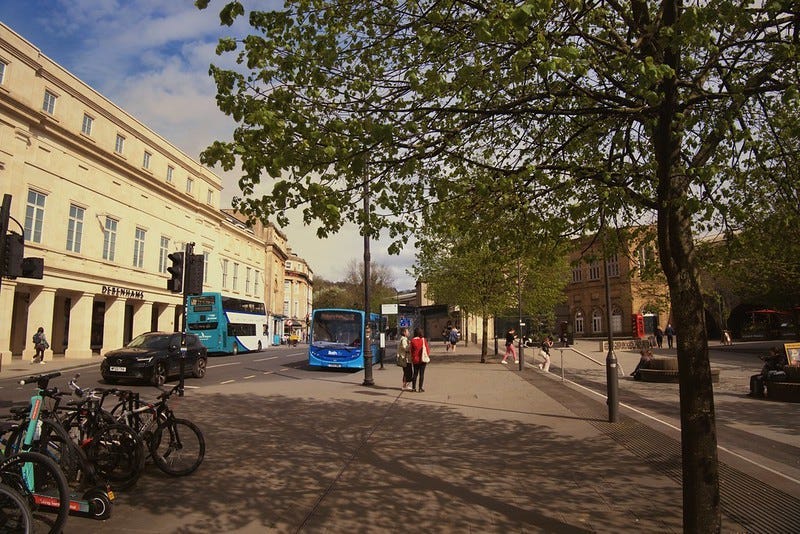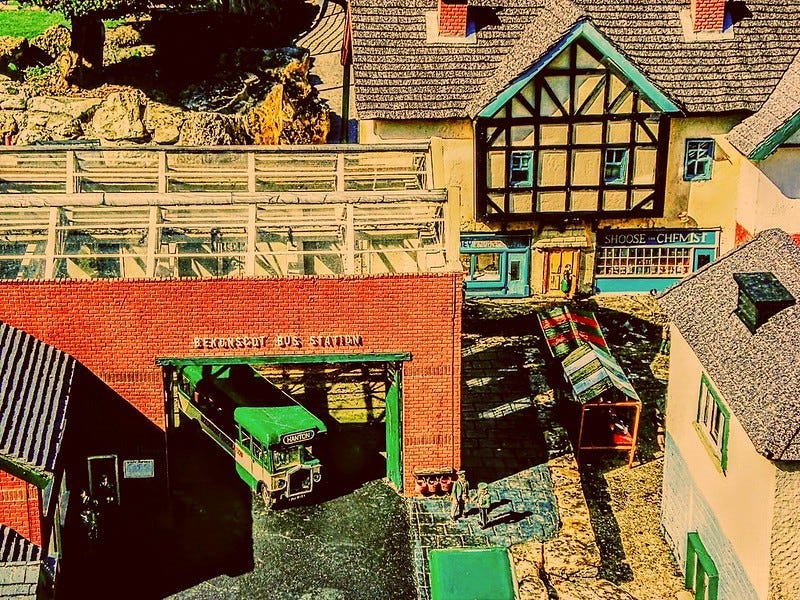My Withdrawal from Twitter… And My Return to X
Five years ago, I signed up to Twitter. It was one of those places where pretty much everyone who had a public voice was to be found sharing their takes on whatever the latest goings on were; hence, it was the place to be if you wanted to be by any standards a thought leader of some form or other.
To say that I have ever wanted to be a “thought leader” kind of feels like an exaggeration — I’m not really the type who aspires to be looked up to and respected, but I consider myself blessed to have knowledge and experience which might help improve other people’s lives. I was then working, had church commitments, and played the side drum in my local Scottish pipe band, with little time for much by way of serious online content creation. Nevertheless, I started a blog that year (the content of which I’ve since obliterated amid plans for a repositioning), and was already involved in the year-long Young Ambassador program with the UK visually impaired children’ & young people’s charity, VICTA, researching and writing articles for the Strive e-newsletter. I wanted to be a thought leader, not for the personal gain, but for the contribution I could make towards building a better future.

To say that my time on Twitter changed me is something of an understatement. As I signed up, I was asked what topics I was interested in. The list wasn’t great, at least, not if you couldn’t be bothered with current affairs and tabloid discussions. But one topic that was there was architecture, and though I had more of a mild curiosity on the subject, for the sake of making a selection, I selected it. I can’t even remember what else I selected, but based on my selections, one of the accounts recommended the account; “Architecture Revival,” not a popular account in the mainstream world, but for me, it was the door to a world I didn’t know existed. From there I discovered the urban design and social commentary of the blog; “Wrath of Gnon” and the urban design social enterprise, Create Streets. Seeing the commentary of these and other accounts opened me up to the true philosophy of Traditionalism, which sees value in the wisdom refined by the experience of successive generations, and which makes truly sustainable, and happy places where people can thrive. It was, for me, exactly as anyone would expect social media to be, a place for connecting with and sharing ideas, learning from others and taking inspiration.
Sad to say that those last six months of 2019 certainly didn’t last. As 2020 advanced, it brought with it a pandemic of dramatic proportions, more, dare I say it, because of the policies of powers that be whose objectives, at least in my view, didn’t truly lie with the best interests of the general populace. Concerned as much for my freedom to live according to my Christian beliefs as for my health, I spent a lot of time online, sharing my concerns, and perusing the opinions and concerns of others.
Searching for signs of hope amid an increasingly chaotic and divided world, I couldn’t help but notice that all the arguments back and forth never really got anywhere. One reason for this was that neither side ever seemed to actually address the concerns of the other. Some might say that this is to be expected — the battle lines have been drawn and compromise is not an option as a matter of principle. With that, I could not help but agree, but if we view such societal, cultural, and political debates purely as battles of principles, especially if you’re more on the conservative side of the political spectrum, you’re choosing the wrong tactic.
Born and raised Traditionalist Catholic, I had never been especially politically aligned, and indeed, I still am not. On the one hand, the conservative side of the spectrum has a little more space for some of the values inseparably bound to my religious views, but I have always felt the need for humanity to be good custodians of our natural, God-given world, as much because our survival as a species depends on it as because it is His Creation and a reflection of His glory. My exposure to the principles of New Urbanism also spawned the view that reducing pollution is not just a question of saving the natural environment, but also ensuring pleasant built environments in which people live, work, and play… and worship. As such, I am not immune to rethinking how we live, produce the goods and services we need, and move around.

I say this as much to present in brief the philosophical outlook by which I see the world and human society, but also to present an example of a reality all too often forgotten by the folks we see dropping hot takes in the news and on social media. Most people are not ideologically politically aligned — they have a particular lifestyle, and their first interest is their ability to live as they choose in a functional society. Of course, many commentators will claim to be a voice for ordinary people in the media, but I can’t help wondering to what extent their arguments are shaped by the concerns of ordinary people versus the socio-political ideologies they hold when they don’t seem to even be able to respond directly to a concern raised by an opponent in an actual debate.
Now I’m sure many of these commentators are well-meaning people who have their own reasons for coming to the views they hold — indeed, it is ordinary people’s concerns that make commentators and activists. But if we cannot sit down for a round-table discussion to come up with solutions that address the various concerns, then we end up where we are now, with a chaotic political system caught in a whirlpool of activism, while the average Joe Public looks on in frustration at the ineffectiveness of the voice he was supposed to have.
Of course, democratic politics has always essentially been a question of prioritising different conflicting concerns, but now, the dividing lines run even deeper, touching on the very question of what is or isn’t true. And with the complete erosion of trust, not only in the professions and institutions on which civilised society depend, but even mutual trust in the people around us, how do we even open up conversations that can heal the divisions, rebuild consensus, and foster happy and sustainable communities?
While social media has been great for the exchange of ideas across geographical and cultural boundaries, it has also reduced that exchange of ideas to a battle of posting cheap shots that sound like a great victory to the side whose representative fired, but don’t actually change very much. In an age when time is a valuable commodity, and attention spans are virtually non-existent, it’s easy if you have ideas that you want to share to go for the quick wins that get views, likes, and follows. But if we’re after genuine long-term solutions, then we need a more principled discussion that goes beyond the 270 character limit. More importantly, we need to lengthen our attention spans, deepen our knowledge, and strengthen our arguments, and that requires unplugging from the rapid-fire circuitry of social media.
So that’s what I’ve been doing — taking time to improve myself as a thought leader and creative communicator. But of course, one who feels the need to share ideas can only hide in the shadows so long before they must choose been remaining perpetually hidden and engulfed in the shadows behind a day that has moved on without them, or catching up with the day and chasing after the dawn.

Through my time of withdrawal, the social media landscape has changed dramatically as new platforms have emerged, and the powerhouse that once was Twitter was bought out by one Elon Musk and begun the process of morphing into the “everything app” known as X. I have to say that even as someone who tentatively welcomed Mr Musk’s purchase of the platform, I count myself among the many who simply cannot accept the rebrand, but that’s another discussion altogether. Nevertheless, my purpose of exploring and sharing ideas based on Traditionalist Catholic perspectives on politics, economics, and culture has not changed, and social media remains a vital leg on which this purpose stands, backed by more in-depth content split across a number of websites focused on different purposes. Having started a blog called Michael’s Mission back in 2019 (and then hardly publishing there for some time), I’ve been in the process of rebranding that site into my main site, M J Alford, with the blog, Michael’s Mission focusing on a more in-depth discussion of traditionalist Christian values, while my Medium feed will serve the purpose originally intended to be served by Michael’s Mission as a place for written commentary on current trending topics. I also have a separate travel blog where I document my travels to record and photograph our cultural heritage across the world.
So as I begin my new journey, long in preparation, I hope that my readers will deign to join me in exploring our world from a different perspective, seeking to understand our past and the lessons to be learned therefrom, and the role of environmental, cultural, and natural heritage in building thriving, happy, and sustainable communities for generations to come.


